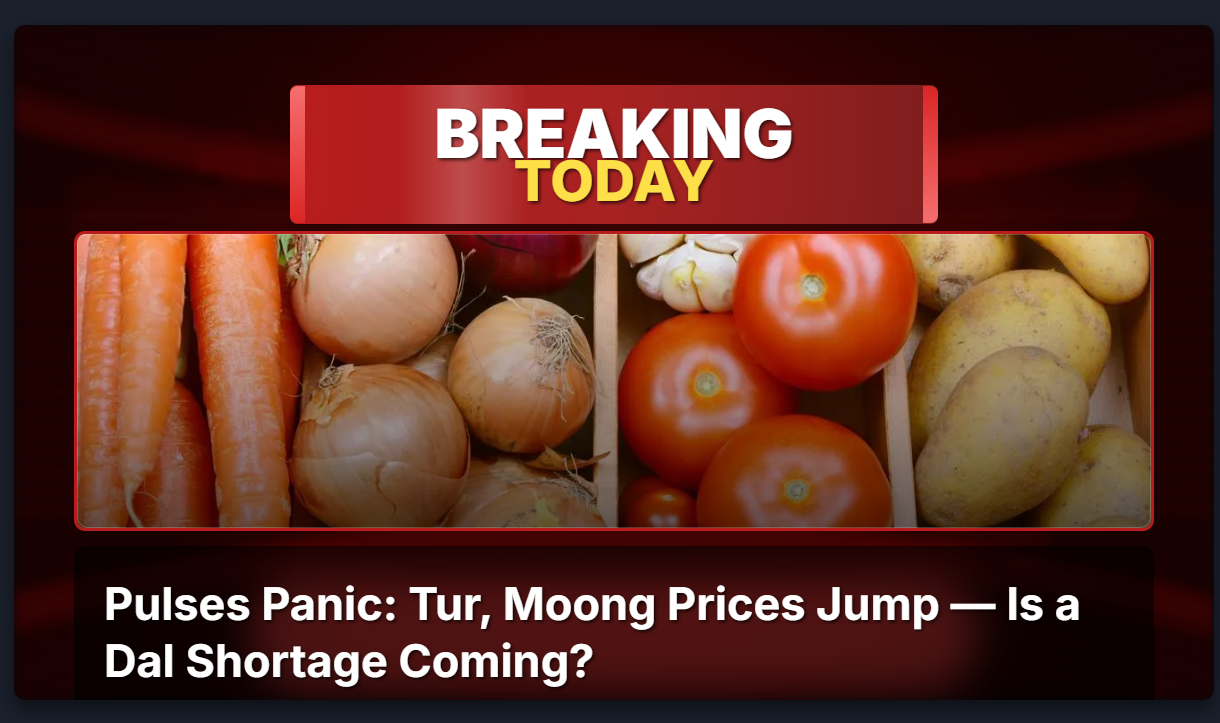India’s kitchens are on edge as prices of key pulses — tur and moong — have surged 25% in just a week, sparking fears of a looming dal shortage across the country. In Hyderabad, Bengaluru, and Mumbai, tur dal now sells for ₹110–120/kg, while moong has crossed ₹130/kg, putting pressure on millions of households.
Why are dal prices soaring?
Erratic monsoon rains in Karnataka and Maharashtra — India’s top pulse-producing states — have stunted crop growth and disrupted harvesting schedules. Traders report that mandi arrivals have dropped by nearly 40% compared to last month, creating an acute supply crunch.
Impact on your kitchen:
Pulses are the primary source of protein for many Indian families, especially vegetarians. Rising dal prices are forcing households to either cut consumption or switch to cheaper, lower-quality pulses, straining nutrition and budgets alike. Restaurants and tiffin services have already hiked rates on dal-based dishes.
Experts caution:
“Unless monsoon patterns stabilize soon, India could face a significant pulse shortage, pushing prices up another 10–20% in the coming weeks,” warns food economist Dr. A. Rao.
What’s next?
Government agencies are reportedly considering pulse imports to ease prices, but traders doubt imports can arrive in time to stop the current surge.
Bottom line:
As dal prices climb, your monthly grocery bill could soon look scarier than ever — keep an eye on the skies, because the monsoon holds the key to India’s next protein crisis.
